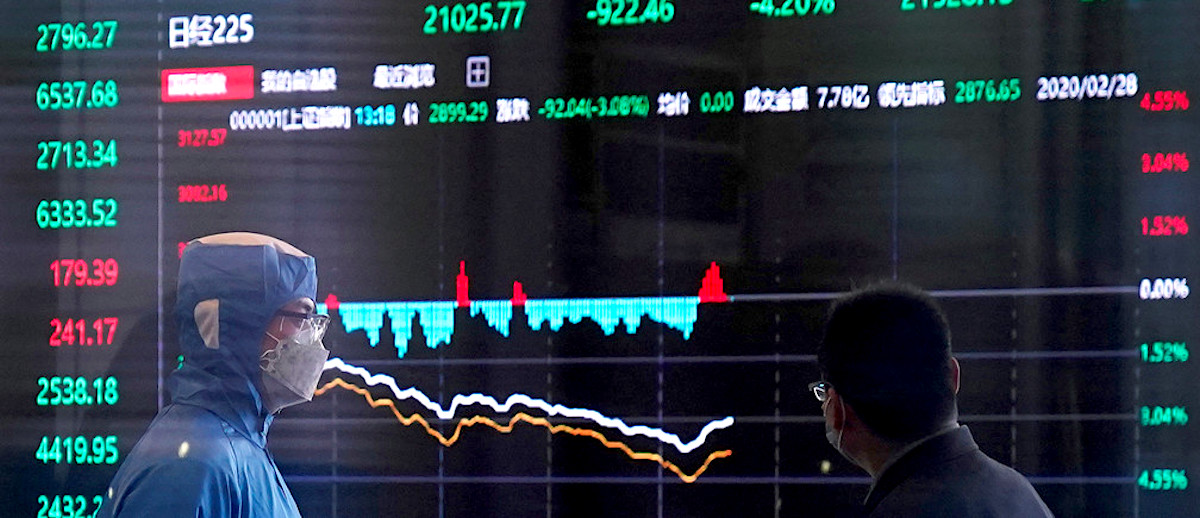Over the past few months, headlines of major news outlets have been centred around COVID-19, which has caused a major strain in both local and global economies.
We are already feeling the impact in our daily lives, but to follow the breadcrumbs of what these impacts might eventually lead to, it’s important to first understand how the economy works.
The local economy is best represented by the country’s Gross Domestic Product (GDP), which is basically the monetary value of all finished goods and services.
GDP can be calculated in three ways, using expenditures, production, or incomes.
A year-on-year GDP is desirable because the more a country produces, the more revenue it can make via trade export. With more revenue, the government can invest them into local infrastructure to help increase the quality of life for its citizens.
Companies Are Cutting Costs Amid COVID-19
In the workplace setting, the COVID-19 outbreak has prompted companies and employees to limit face-to-face interaction so as to minimise the risk of exposure. This results in delayed meetings, cancelled conferences, and a general production slowdown both locally and globally.
As the production of companies slows down, their revenue will also take a hit because they have lesser products to sell.
With companies now forecasting that there will be a dip in their revenue, one of the first steps many companies have taken is to reduce their cost.

Over the past few weeks, many companies in Singapore have announced pay cuts as part of their cost-cutting measure. Here’s a quick breakdown:
- Singtel is implementing a company-wide salary freeze this year. Only operational and support staff will not be affected.
- SATS announced 5 to 15 per cent pay cut across different levels of management.
- SP Group’s board of directors will receive a 5 per cent reduction in their director fees.
- SingPost is entering a hiring freeze for all roles except essential roles. This salary freeze will also be observed for assistant vice-presidents and above, while senior vice-presidents and above will take a 5 per cent pay cut.
- SMRT is implementing salary cuts of up to 5 per cent.
- Temasek is implementing a company-wide salary freeze, including promotion raises.
- CapitaLand is freezing salaries for all staff at managerial level and above. The company’s board members and senior management will be taking pay cuts of 5 to 15 per cent starting April.
While these measures are notable, it is important to also understand that they only offer temporary relief.
Hiring Freezes Will Affect Country’s GDP
Should the COVID-19 outbreak continue to prolong for a few more quarters, companies will struggle with lesser cash and revenue. The immediate effect of this is that they will cease to hire new workers, which in turn can stop the country’s employment growth.
This is worrying because employment growth is another important part of the country’s GDP.
In theory, GDP could be raised by increasing the employment. With more labour, a country can produce more — this results in a higher GDP.
With employment growth coming to a halt, we will unfortunately be entering a recession soon. By definition, a recession occurs when there are two or more consecutive quarters of negative GDP growth.
On February 17, the Ministry of Trade and Industry (MTI) estimated that Singapore’s economic growth will be between -0.5 per cent and 1.5 per cent this year. This is after taking into account our poor economic growth last year, which recorded a decade-low growth of 0.7 per cent.
This forecast was made a month ago, back when the COVID-19 outbreak has yet to escalate in countries such as Italy, Korea, Iran or the United States.
Economists have dubbed the COVID-19 virus as a ‘black swan event’ — a rare event that is hard to predict and beyond the realm of normal expectations in history.
Such black swan events are also known to trigger financial crises and major recessions in history.

With Oil Prices Also Crashing, Will We Go Into Recession?
While it would seem premature to predict that one virus outbreak will cause a recession, another major event that took place last weekend has sent shocks to the global financial market.
Oil prices have crashed, resulting in global sell-off in the financial markets.
This has made an indelible impact because oil is such an important factor in the global economy. In fact, oil has become the world’s most important source of energy since mid-1950s.
With oil, we can get energy to power most industries in the world. We can also get energy to heat our homes, as well as use it as fuel for vehicles and aeroplanes to transport goods and people.
To ensure that this commodity is properly regulated and priced, an Organization of the Petroleum Exporting Countries (OPEC) was set up in 1960.
OPEC’s mission is to coordinate and unify the petroleum policies of its Member Countries and ensure the stabilisation of oil markets. OPEC consists of countries with high oil reserves, such as Saudi Arabia and Iran.
While most of the world’s top oil producers are in OPEC, Russia — which has become the second top old producer in the world — is not listed under it.
Following the COVID-19 outbreak, demand for oil has largely plunged as a result of softened industrial output as well as the huge decline in the travel and airline industry. Factories are also idle and thousands of flights have been cancelled globally.
In China, its manufacturing index showed a huge contraction early this year.


As the demand for oil has dropped sharply, OPEC along with Russia, had a meeting last Friday to discuss production cuts in order to curb price drop.
The law of demand and supply dictates that if the demand decreases and supply remains unchanged, it will lead to lower equilibrium price. To maintain the price, they would have to reduce the supply.
During the meeting, the Saudis pushed for additional production cuts of 1.5 million barrel per day through the end of this year. However, Russia remained unwilling to go beyond an extension of the existing cuts until the end of June.
According to Russia, it was too early to assess the COVID-19 impact on oil demand. It argued that instead of further production cuts, an extension of the existing cuts was the best course of action, pending a further review of market conditions later in June.
Since Russia refused to cut oil production, there were no conclusive agreement during the meeting.
In “retaliation” against Russia, Saudi Arabia slashed the prices of its crude oil and promised to ramp up oil production, marking a full on crash of the crude oil.

Although the oil price decline should theoretically be good news to the manufacturing and airline industry, both the industries are currently stripped of their demand on the back of the worsening virus outbreak.
The oil price is expected to fall further, to the point where its supply meets demand, which can only be restored when we see the stabilisation of the COVID-19 outbreak.
With the oil price crashing, this sends further shock into the equities market as global stock prices also crash.
A Gloomy Global Outlook
While there are no actual correlation between oil price and stock price, stock prices are generally an indication of investors’ sentiment towards how well major companies can do in the future.
With the global outlook dampened further by the ongoing oil price plunge, major stock indexes around the world saw huge price drops.
The Singapore Straits Times Index, which tracks the performance of the top 30 companies listed in the Singapore stock exchange, saw the largest single-day drop in over 10 years.
Experts attributed the crash to the confluence of two black swan events: COVID-19 reaction and oil.
As the stock market continues to drop, investors become more risk adverse. They have opted to stop investing and move their investments into safer portfolios such as gold or in cash.
With lower investing activities, the local economies and local companies will have lesser access to capital, which in turn will cause further strain to the financial system.
Prolonged COVID-19 outbreak, coupled with the crash of the oil price and the stock market, will unfortunately spell bad news for the economy, resulting in a recession.
Featured Image Credit: Aly Song via Reuters








